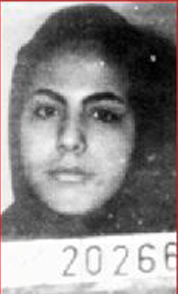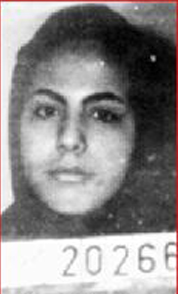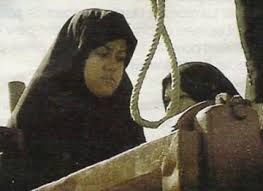She was buried in The Neka Cemetery, in Neka Iran but when her family went to visit her grave it had been dug up and her body removed and has not be found. Her original grave site is her only memorial. ∼Atefeh Rajabi Sahaaleh (Persian: عاطفه رجبی سهاله; – was a 16-year-old Iranian girl from the town of Neka, Iran who was executed a week after being sentenced to death by Haji Rezai, head of Neka's court on charges of adultery and "crimes against chastity."
After the execution of Atefeh, Iranian media reported that Judge Rezai and several militia members, including Captain Zabihi and Captain Molai, were arrested by the Intelligence Ministry. The execution is controversial because as a signatory of the International Covenant on Civil and Political Rights, Iran promised not to execute anyone under the age of 18. Atefah's father had passed her birth certificate to the civil authorities, lawyers involved, journalists and Judge Rezai. Pursuant to continual complaints filed by Atefeh's family, and heavy international pressure about her execution and the way the judge mishandled the case, the Supreme Court of Iran issued an order to free Atefeh.
She was publicly hanged from a crane in Neka, Iran, on August 15, 2004. The judge in her case, Haji Rezai, allegedly also applied the noose himself.
Amnesty International and other organizations declared her killing to be a crime against humanity and against children of the world.
She was buried in The Neka Cemetery, in Neka Iran but when her family went to visit her grave it had been dug up and her body removed and has not be found. Her original grave site is her only memorial. ∼Atefeh Rajabi Sahaaleh (Persian: عاطفه رجبی سهاله; – was a 16-year-old Iranian girl from the town of Neka, Iran who was executed a week after being sentenced to death by Haji Rezai, head of Neka's court on charges of adultery and "crimes against chastity."
After the execution of Atefeh, Iranian media reported that Judge Rezai and several militia members, including Captain Zabihi and Captain Molai, were arrested by the Intelligence Ministry. The execution is controversial because as a signatory of the International Covenant on Civil and Political Rights, Iran promised not to execute anyone under the age of 18. Atefah's father had passed her birth certificate to the civil authorities, lawyers involved, journalists and Judge Rezai. Pursuant to continual complaints filed by Atefeh's family, and heavy international pressure about her execution and the way the judge mishandled the case, the Supreme Court of Iran issued an order to free Atefeh.
She was publicly hanged from a crane in Neka, Iran, on August 15, 2004. The judge in her case, Haji Rezai, allegedly also applied the noose himself.
Amnesty International and other organizations declared her killing to be a crime against humanity and against children of the world.
Sponsored by Ancestry
Advertisement
Explore more
Sponsored by Ancestry
Advertisement




